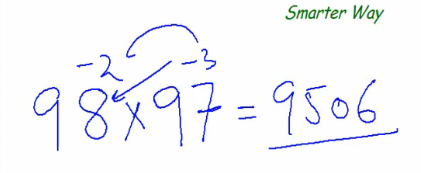Mental Performance In Every Bottle?
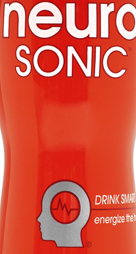 … or so claims the by-line for Neurosonic, a new energy drink tuned to enhance brain function and cognitive performance. These drinks go beyond caffeine, sugar and vitamins to include amino acids such as L-theanine and brain chemicals such as Phosphatidylserine. There is some scientific evidence that such additives can produced improved memory and concentration as well as efficient task switching.
… or so claims the by-line for Neurosonic, a new energy drink tuned to enhance brain function and cognitive performance. These drinks go beyond caffeine, sugar and vitamins to include amino acids such as L-theanine and brain chemicals such as Phosphatidylserine. There is some scientific evidence that such additives can produced improved memory and concentration as well as efficient task switching.
Could be an important development but do they produce noticeable improvements in everyday life?
For additional discussion check on the article Bottles Full of Brain Boosters in Discover Magazine.
Interested to hear from readers that have used Neurosonic products or any other brain drink that goes beyond sugar, caffeine and vitamins.
Categories: Diet, Memory and Learning, Mental Focus Tags:
Daily Practices for Optimal Cognitive Performance
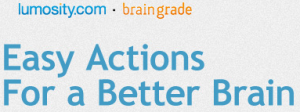 Lumosity, a well respected maker of brain training tools and games, recently shared the results of a massive (750,000 person) survey. They looked for specific daily practices that support optimal cognitive performance.
Lumosity, a well respected maker of brain training tools and games, recently shared the results of a massive (750,000 person) survey. They looked for specific daily practices that support optimal cognitive performance.
Here is what they found:
- 7 hours of sleep is much better than 5 or 10 especially when combined with the other practices.
- Exercise is key but your don’t need much. Cognitive performance peaks at about 2-3 workouts per week.
- Read at least 10 minutes everyday.
- Have 1-2 alcoholic drinks per day. Definitely avoid 3 or more.
- Play a musical instrument at least once per week.
Following these practices should improve memory and speed of mental processing.
Rarely do you see such specific advice on duration and quantity. Lumosity is able to get so specific when others are not because they have some 20 million registered users.
I am interested to hear from readers that decide to try this out.
Categories: Cognitive Decline, Diet, Lifestyle, Memory and Learning, Mental Focus, Music and Audio Tags:
Rosemary Scent Boosts Mental Speed & Accuracy
 I am often asked if aromas or scents improve brain function and enhance cognitive performance. Several previous posts on the Next Brain blog have highlighted peppermint, cinnamon, vanilla and citrus. Now, new research shows a link between aroma generated by rosemary oil and improved speed and accuracy in analytic and visual tasks. Rosemary contains an ingredient that impacts our neurochemistry. In the experiment the more of this ingredient that was absorbed the greater the chance of improved cognitive performance.
I am often asked if aromas or scents improve brain function and enhance cognitive performance. Several previous posts on the Next Brain blog have highlighted peppermint, cinnamon, vanilla and citrus. Now, new research shows a link between aroma generated by rosemary oil and improved speed and accuracy in analytic and visual tasks. Rosemary contains an ingredient that impacts our neurochemistry. In the experiment the more of this ingredient that was absorbed the greater the chance of improved cognitive performance.
For more information you can read the research article in the journal of Therapeutic Advances in Psychopharmacology or a another blog post.
Interested to hear from readers that use rosemary and other aromas to boost alertness, focus, processing speed, mood or other cognitive factors.
Categories: Ancient Ways, Mental Focus, Other, Problem Solving Tags:
Gift Giving Idea: Consider Fat Brain Toys
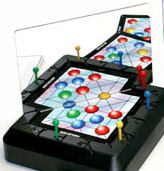 Fat Brain offers an amazing collection of high quality toys and entertainments designed to stimulate the brain and develop cognition. You can shop for toys by gender and ages ranging from 1 year old to 18 years old. From magnetic poetry and brain food (colorful goo) to the best selling stomp rockets and reflections (image shown), a truly unique game that combines mirrors, visual illusion and competition.
Fat Brain offers an amazing collection of high quality toys and entertainments designed to stimulate the brain and develop cognition. You can shop for toys by gender and ages ranging from 1 year old to 18 years old. From magnetic poetry and brain food (colorful goo) to the best selling stomp rockets and reflections (image shown), a truly unique game that combines mirrors, visual illusion and competition.
Just the kind of toys that should be on the holiday shopping list of Next Brain Blog readers. Interested to hear from anyone that has purchased or plays with Fat Brain Toys. How are they making you smarter?
Categories: Child, Cognitive Development, College Student, Mental Focus, Other, Perception, Problem Solving Tags: toys
Can the ABCs Unblock Your Mental Performance?
 Cognitive Behavioral Therapy (CBT) has seen a lot of success over the last 25 years. The ideas is that faulty assumptions or patterns of thinking can seriously impair how we learn, make decisions, socialize or otherwise perform cognitive functions. In CBT the therapist works with the patient to surface the faulty pattern of thinking and change it thereby relieving the problems. The tools of CBT have been incorporated in other disciplines such as leadership, design and self improvement.
Cognitive Behavioral Therapy (CBT) has seen a lot of success over the last 25 years. The ideas is that faulty assumptions or patterns of thinking can seriously impair how we learn, make decisions, socialize or otherwise perform cognitive functions. In CBT the therapist works with the patient to surface the faulty pattern of thinking and change it thereby relieving the problems. The tools of CBT have been incorporated in other disciplines such as leadership, design and self improvement.
As a self-improvement approach the individual attempts to surface and alter faulty assumptions pretty much on their own. While the success of the self-improvement approach has not been scientific demonstrated it does seem to have staying power. More and more books, programs and training events are aimed at how individuals can use CBT to manage their owning thinking and improve cognitive performance. Such programs are typically focused on learning:
- The ABC formula (see diagram) or the connection between activating events, the beliefs they generate and the emotional consequent or feeling we have
- How to analyze self talk especially those messages we repeat
- Ways to identify patterns of dysfunctional thinking (e.g. over generalizing or catastrophizing)
- Techniques for modifying the patterns (e.g. confronting and flooding).
For example you can use this approach to identify and mitigate the negative self-talk that stops you from taking action, making a difficult decision or giving a presentation. To explore CBT further you can work through a short online presentation developed by James Porter or check out CBT for Dummies.
Interested to hear from readers that have used CBT by themselves or with a therapist to improve cognitive performance.
Source: ABC Diagram
Categories: Books, Manage Emotions, Mental Focus, Training Tags:
Do ADHD Meds Make Healthy People Smarter?
Many of the emails I get about building a Next Brain have to do with drugs, especially medication prescribed for attention deficit hyperactivity disorder or ADHD. Readers want to know if there is evidence to support the claim that people without ADHD that still use drugs like Adderall will experience improved brain function and enhanced cognitive performance.
Important note: Using medications outside of the boundaries of their prescription or using medications without a prescription can be unsafe and illegal.
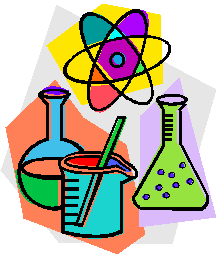 The 2011 September issue of the Psychological Bulletin has taken this question up with articles on who takes so-called smart pills and what kind of effects they are having. My favorite paper,
The 2011 September issue of the Psychological Bulletin has taken this question up with articles on who takes so-called smart pills and what kind of effects they are having. My favorite paper,
reviews results from over 40 studies finds:
“The cognitive effects of stimulants on normal healthy people cannot yet be characterized definitively, despite the volume of research that has been carried out on these issues. Published evidence suggests that declarative memory can be improved by stimulants, with some evidence consistent with enhanced consolidation of memories. Effects on the executive functions of working memory and cognitive control are less reliable but have been found for at least some individuals on some tasks.”
In short there is some evidence for improved learning by memorizing (simple list of items) but doubt about significant improvement on working memory (how much information you can attend to at one) or self control.
More research is in the works but early results signal that the smart pill in its current form is not a silver bullet for the Next Brain.
Categories: College Student, Executive Function, Mental Focus Tags: smart drugs
Simple Rules Immediately Boost Math Brain
 Learning or relearning the basics of arithmetic – or how to add, subtract, multiply and divide numbers – is painful for most. With calculators everywhere some ask why even learn arithmetic?
Learning or relearning the basics of arithmetic – or how to add, subtract, multiply and divide numbers – is painful for most. With calculators everywhere some ask why even learn arithmetic?
Arithmetic is a core skill in a broader competency called numeracy or how we think quantitatively or with numbers. Quantitative literacy is important for success in a wide variety of careers and household projects, even if you use a calculator! Turns out that learning arithmetic (when done right) is excellent brain training and a foundation for quantitative literacy.
One key – see patterns in numbers using simple rules.
For example, can you complete 98 x 97 = ? in five seconds without a calculator? How about without paper and pencil?
This YouTube video will teach you how to do the problem and similar ones in just a few minutes. A snapshot is given below.
This is just one example of how a simple rule will immediately boost you math skills and build your brain. Of course you need to practice to get it to stick. There are many such rules and even some math programs for sale that teach them. The video above comes from Glad2Teach that also offers a similar approach to algebra. Another program that combines simple rules with memory building and fun is Brainetics.
Even if you already know arithmetic, such programs offer 10-15 minute daily exercises for training your math brain and building quantitative competency.
Very interested to hear from readers with experience using programs that teach simple rules for doing complex arithmetic problems by looking for patterns in numbers.
Categories: Child, Cognitive Development, Memory and Learning, Mental Focus, Training Tags:
Build a Better Brain by Consciously Listening
The listening and sound expert Julian Treasure has an excellent 8 minute TED Talk video on why we are losing our ability to listen and what to do about it. Of special interest to readers of the Next Brain Blog are the five techniques he offers to improve your ability to listen consciously. These include:
 Actively listen to others by practicing RASA or receive, appreciate, summarize and ask questions.
Actively listen to others by practicing RASA or receive, appreciate, summarize and ask questions.- Enjoy 3 minutes of silence or quiet per day to help reset or re-calibrate your listening.
- Count the channels or sources of sound in a noisy environment. For example, walking down a city street you receive sound from a dozen sources including car horns, nearby conversation, buses and so on.
- Change your listen position by adjusting the filters that shape how you hear including for example, expectations and empathy.
- Listen to the hidden choir around you. This involves savoring ordinary sounds, for example hearing the symphony in your tumble dryer.
These five techniques are simple but practicing them will with time transform how you consciously listen. Hearing the world is a key to improved cognitive performance.
Interested to hear from readers that practice specific techniques of conscious listening. What techniques do you use? What have you heard that the rest of have not?
Categories: Lifestyle, Mental Focus, Perception, Training Tags:
Use Your Finger to Crank Your Brain
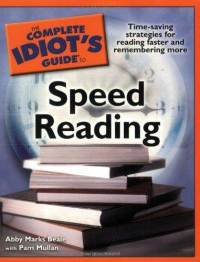 I read faster from paper than I do on a computer screen. With paper I can use my finger to guide my eyes. A well-known speed reading technique, guiding and pacing, lowers the load on your visual system and helps avoid skipping back and other distractions. It is simple and it works. Try it out.
I read faster from paper than I do on a computer screen. With paper I can use my finger to guide my eyes. A well-known speed reading technique, guiding and pacing, lowers the load on your visual system and helps avoid skipping back and other distractions. It is simple and it works. Try it out.
With practice you can drop your finger and still get the effect because your eyes have been retrained. I get some of this effect but am still fastest with good comprehension when I use my finger.
This is just one of the techniques covered in the excellent book, The Complete Idiot’s Guide to Speed Reading.
If you don’t already use these techniques, several weeks of practice will produce a big jump in you reading speed and will likely improve comprehension as well.
Reading speed is important. The difference between a slow reader and an excellent reader means 3 books per week if you read an hour a day.
Very interested to hear from readers that have simple techniques (e.g. use of your finger) to crank your reading speed or other cognitive performances.
Categories: Books, Memory and Learning, Mental Focus, Perception, Training Tags: processing speed, speed reading
What is Your Brain Performance Index?
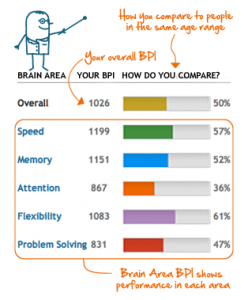 Lumosity, a leader in the growing field of cognitive training, has introduced the brain performance index. The index is an empirical and comparative measure of your ability to focus and sustain attention, processing speed, memory, problem solving skill and mental flexibility. You can set up an account and build your profile for free. If you want to know how you compare to others in your age group you need to subscribe.
Lumosity, a leader in the growing field of cognitive training, has introduced the brain performance index. The index is an empirical and comparative measure of your ability to focus and sustain attention, processing speed, memory, problem solving skill and mental flexibility. You can set up an account and build your profile for free. If you want to know how you compare to others in your age group you need to subscribe.
Like other instruments that assess your cognitive abilities, the brain performance index (BPI) gives insights into strengths and weaknesses. It should help you define goals for working on your next brain.
Interested to hear from readers that use the BPI or other assessment instruments to set goals for how best to achieve peak cognitive performance.
Categories: Memory and Learning, Mental Focus, Problem Solving, Software Tags: brain fitness


